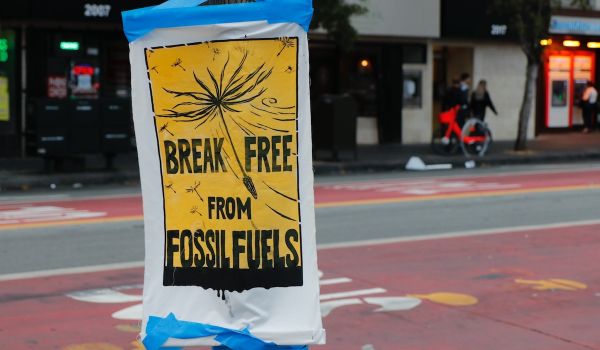“When we come together with the little old grandmothers in tennis shoes – take-no-prisoner Marine Corps types,” said Robert Bullard in the welcome address at last week’s “Advancing Climate Justice” conference in New York, “there is nothing we can’t do.” Indeed, those “little old grandmothers” have been among the champions of the nation’s most vulnerable communities. Considered the “father” of the environmental justice movement, Bullard is a researcher and author, and founded the Environmental Justice Resource Center at Clark Atlanta University 15 years ago.
Environmental justice, often simply referred to as “E.J.” by insiders, is a term not yet ingrained in America’s collective consciousness. But everything has its tipping point, and if last week’s conference is any indication, the phrase will soon become as familiar as one’s own “carbon footprint.” The movement gained momentum in the early 80’s, when activists began to protest the disproportionate exposure of low-income communities of color and poor whites to environmental hazards, such as industrial toxics and waste dumping. “Climate justice” is a newer term coined for those communities that are experiencing the earliest climate disasters, or soon will.
The range of territory covered at the conference, from local to global and advocacy to science, was extraordinary, if a little overwhelming. Organized by the Harlem-based group WE ACT for Environmental Justice, the event brought together around 400 attendees. Despite a large presence of community-based organizations, this was not simply a convening of advocates. There were lawyers and law students, state and federal climate policy-makers and environmental scientists. Dr. Beverly Wright, director of the Deep South Center for Environmental Justice, which is most well-known for advocating on behalf of the most vulnerable New Orleanians after Katrina, was among the speakers. So too was Obama’s newly-confirmed pick to head the Environmental Protection Agency, Lisa Jackson, in her first public appearance since being confirmed. Despite criticism by some during her tenure as commissioner of the New Jersey Department of Environmental Protection that she is too close to the industry that she is supposed to regulate, conference attendees are hopeful that Jackson will be more attuned to E.J. causes than her predecessor, Stephen Johnson. Jackson herself has dealt with climate justice firsthand: Her mother was a Ninth Ward homeowner when Katrina hit. “I understand that trust – especially for the EPA – is hard earned,” she said, adding that her goal was simple: to restore credibility to the agency.
Its two decades of history notwithstanding, E.J.’s lack of resources has relegated it to the background of more mainstream environmental causes, making it nearly invisible to national policy-makers. (One of the platforms central to the environmental justice is support for a carbon tax.) But there seemed to be a palpable shift at the conference. Grassroots E.J. groups are already being granted a listening ear under President Obama’s administration. This is the first time ever that a transition team has asked E.J. groups for policy recommendations, explained Vernice Miller-Travis, who heads the Maryland State Commission on Environmental Justice and Sustainable Communities (and co-founded WE ACT twenty years ago). Miller-Travis said that the transition team not only asked but insisted that the groups meet with members of the transition team. This spawned a renewed sense of validation among advocates at the conference, an intrinsic awareness that grassroots advocacy has risen on the totem pole in the White House, likely because of Obama’s background in community organizing, and because he won the election using grassroots strategies.
Speaking on behalf of Rep. John B. Larson (D-CT), who introduced the carbon tax bill in 2007, Amy O’Donnell underscored the influence of community voices, saying, “we do want to hear from you on Capitol Hill. If your legislators are not listening to you, vote them out of office because that’s what they’re there to do.” Rep. Charles Rangel (D- NY), Chair of the Ways and Means Committee declared, “It’s going to be the grassroots organizations that turn the country’s energy policy around,” and called community organizers the country’s “real leaders.”
For more on the conference, click here.

Hamida Kinge has written about everything from food security to ocean acidification to luxury cell phones. She was a 2009 fellow of the Scripps Howard Institute on the Environment and a 2008/09 reporting fellow of the Metcalf Institute for Marine & Environmental Reporting. She has contributed to Next American City, Grist, Philadelphia City Paper and U.R.B. domestically as well as Europe-based magazines Essential Macau and Straight No Chaser. For the past year, she has been teaching English as a foreign language to international students and business professionals. Hamida has also been a volunteer English tutor for the International Center in New York.















